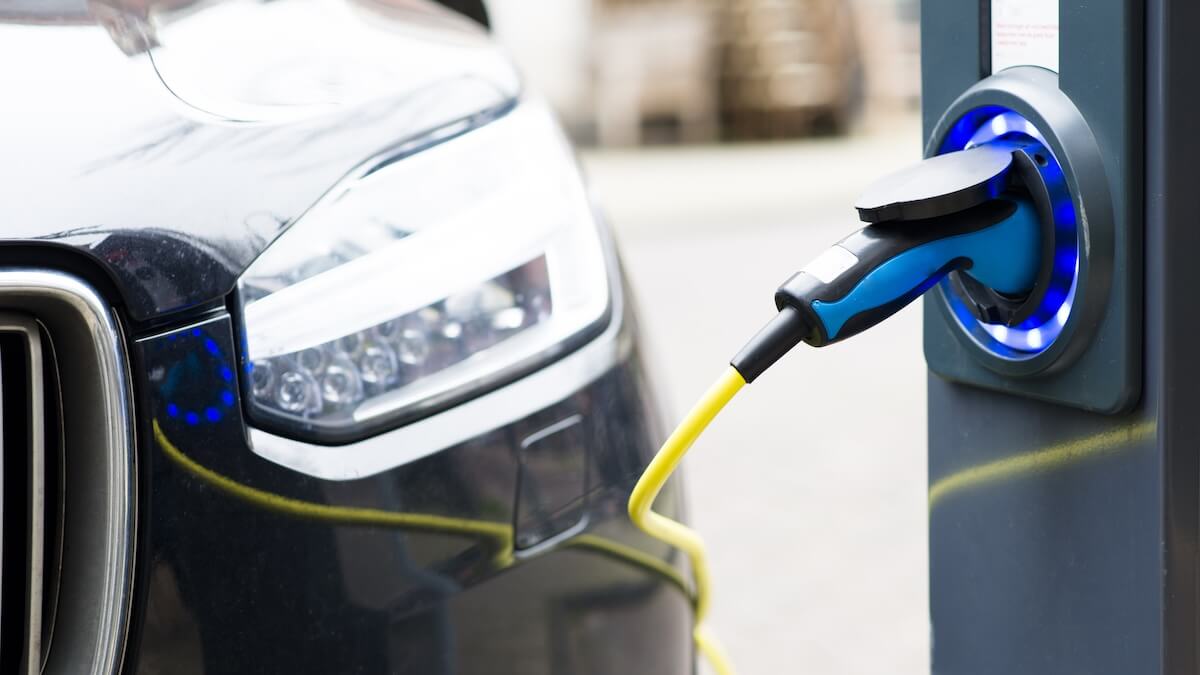The article What drivers think about electromobility first appeared in the online magazine BASIC thinking. With our newsletter UPDATE you can start the day well informed every morning.

Electromobility is also firmly anchored in the federal government’s climate goals. But how do drivers actually feel about this issue? The Deutsche Automobil Treuhand has summarized the mood in its DAT Barometer.
The federal government’s climate goals provide for enormous reductions in CO2 emissions in the coming years. This also applies to the transport sector, which should therefore make a change towards electromobility.
The federal government wants to do so by 2030 15 million fully electric cars bring to German streets. In order for this to be successful, around one million additional publicly accessible charging points are to be created over the next few years.
There are currently numerous support measures for implementation, including tax breaks for e-vehicles and legal regulations that are intended to promote and facilitate the expansion of the charging infrastructure. In addition, the electricity for electric vehicles should increasingly come from renewable energies in order to further improve the overall ecological balance.
But drivers in Germany do not yet seem to be convinced about electromobility. This is what the current figures show DAT barometer.
Electromobility: Drivers would rather opt for combustion engines
The number of electric cars registered in Germany has risen continuously in recent years. From January to September 2025 alone, in Germany Around 382,200 new electric cars were registered.
This means that the number from the first three quarters of this year already exceeds the registrations of fully electric vehicles from the entire previous year. Nevertheless, the numbers are still far from the federal government’s goals.
This is mainly due to the lack of support among German drivers for electromobility. As the DAT Barometer shows, the majority of drivers still prefer combustion engines over electric cars.
According to this, 40 percent of those surveyed would choose a gasoline engine when buying a new car, while 17 percent would choose a diesel engine. The plug-in hybrid, i.e. the hybrid of a combustion engine and an electric car, would come to at least 19 percent. However, only 16 percent of drivers in Germany would choose a fully electric vehicle.
Only 28 percent of vehicle owners would feel guilty about purchasing a car with a combustion engine. This is not the case for 57 percent, and another 15 percent are not sure.
Drivers have little experience with electric cars
The reluctance of drivers in Germany to use electromobility could be due to a lack of experience with this type of drive. Only 34 percent of drivers have ever driven an electric car.
For almost as many car owners, 35 percent of those surveyed would only consider an electric car as a second or third car. This group would not consider an electric car as a “main car” or as a replacement for it.
The big question of how to dispose of or reuse old electric car batteries also raises questions among owners. 69 percent are critical of this, but 35 percent are also convinced that these batteries are better than their reputation.
Also interesting:
- Electric motors from Poland: South Korean company wants to produce in Europe
- This is how much electricity European battery production will need in the future
- Electric car: What happens if the battery is empty?
- Why electric cars use more energy on the highway
The article What drivers think about electromobility first appeared on BASIC thinking. Follow us too Google News and Flipboard or subscribe to our newsletter UPDATE.
As a tech industry expert, I believe that the shift towards electromobility is not only inevitable but also necessary for a sustainable future. It is encouraging to see that drivers are increasingly open to the idea of electric vehicles and are recognizing the benefits they offer in terms of reducing emissions and dependence on fossil fuels.
However, it is also important to address the concerns and misconceptions that some drivers may have about electromobility, such as range anxiety and the perceived high cost of electric vehicles. Education and awareness about the advancements in battery technology, charging infrastructure, and overall cost savings of electric vehicles are crucial in dispelling these myths and encouraging more widespread adoption.
Overall, I am optimistic about the future of electromobility and believe that with continued innovation and investment in the technology, we will see a significant increase in electric vehicle adoption in the coming years. It is an exciting time to be a part of the tech industry and to witness the transformation of the transportation sector towards a more sustainable and environmentally-friendly future.
Credits